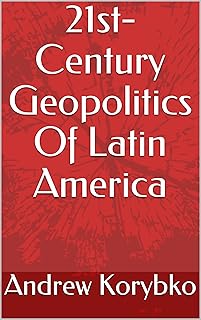Ana Esther Ceceña, a renowned Mexican economist and geopolitical analyst, is known for her expertise in Latin American affairs. As the director of the Latin American Observatory of Geopolitics at the National Autonomous University of Mexico (UNAM), Ceceña delves into the dynamics of power, sovereignty, and resistance. Her scholarly work focuses on strategic resources and the global capitalist system, shedding light on Venezuela’s pivotal role in contemporary global geopolitics.
During a recent event in Caracas, Ceceña provided a comprehensive analysis of Venezuela’s position amidst escalating imperialist pressure. She highlighted the strategic significance of Venezuela’s resources and discussed the broader geopolitical conflicts involving major global powers. Ceceña emphasized the resilience of the Venezuelan people and their ongoing struggle for sovereignty amid external pressures.
The United States’ recent military escalation in the Caribbean, as indicated by a leaked Pentagon document, suggests a strategic shift towards prioritizing control over the Western Hemisphere. Ceceña contextualized this move within the US strategy of confronting strategic adversaries like China, Russia, North Korea, and Iran. The Americas, with their natural resources and geographic advantages, have always been central to US military strategy, but a heightened focus is emerging due to changing power dynamics in the region.
Amidst the imperialist military buildup against Venezuela, recent actions allowing resource exploitation in disputed waters further underscore the broader campaign of resource plunder and military pressure. Ceceña highlighted the potential implications of these moves, including the threat of a total blockade on Venezuela’s exports and targeted attacks on critical infrastructure.
Expanding beyond the narrative of Venezuela’s vast oil reserves, Ceceña emphasized the political project that challenges US hegemony. Venezuela’s resources extend beyond oil to include gold, strategic geographic proximity, and most significantly, the consciousness and unity of its people. Ceceña underscored Venezuela’s unique model of popular democracy and its role as a beacon of resistance against imperialist forces.
Critically analyzing the global geopolitical landscape, Ceceña pointed to a crisis of hegemony facing US imperialism. Economic challenges, loss of global dominance, and military vulnerabilities indicate a shifting power dynamic where countries like Russia and China have advanced military capabilities that rival the US.
Discussing the situation in Palestine within this context, Ceceña highlighted the strategic interests at play, including control over key trade routes and access to natural resources. The involvement of major powers in exploiting resources and supporting colonialist agendas underscores the complex geopolitical dynamics in the region.
Looking ahead, Ceceña acknowledged the uncertainties surrounding US imperialism’s military escalation near Venezuela. While direct invasion seems unlikely, surgical operations targeting critical infrastructure remain a possibility. Despite the challenges, Venezuela’s strong organization, popular mobilization, and international alliances position it to resist external pressures and defend its sovereignty.
📰 Related Articles
- Wall Street Selloff Amid Tariff Threats and Geopolitical Uncertainty
- University of Michigan Ends Flagship DEI Program Amid Political Pressure
- US to Revoke Chinese Student Visas Amid National Security Concerns
- US and Europe Solar Trends Diverge Amid Industry Shifts
- US and Europe Drive Battery Manufacturing Surge Amid Energy Transition






